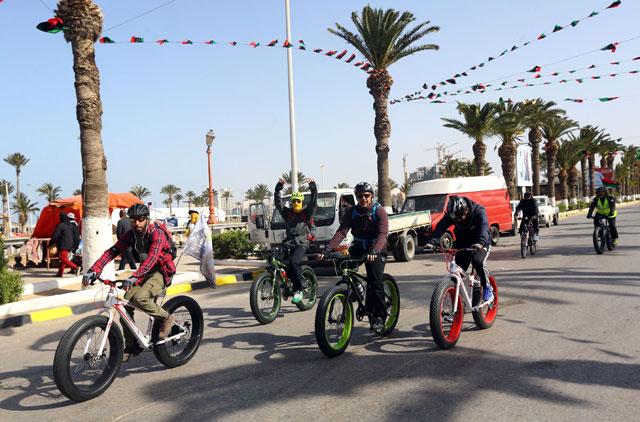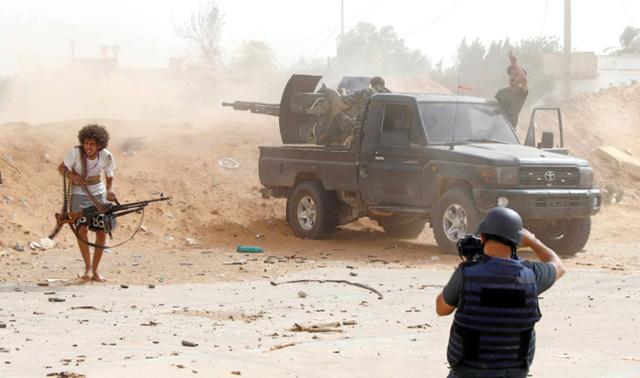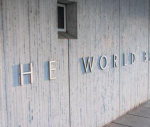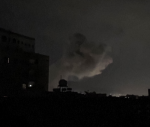You are here
Libya’s Sarraj sees Russia as possible intermediary with eastern commander
By Reuters - Feb 19,2017 - Last updated at Feb 19,2017
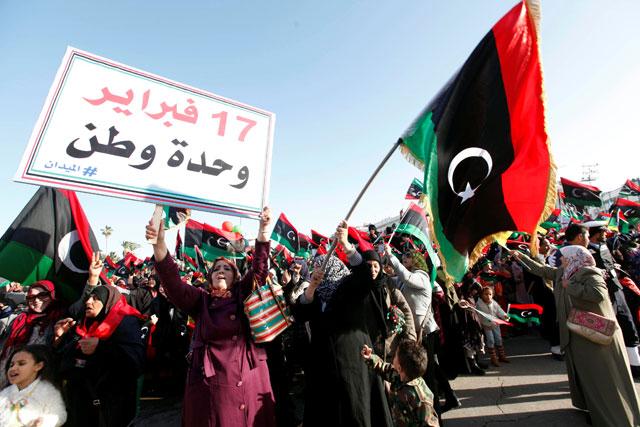
Libyans take part in celebrations marking the sixth anniversary of the Libyan revolution in Tripoli, Libya, on Friady. The placard reads: ‘February 17, united homeland’ (Reuters photo)
MUNICH — Libyan Prime Minister Fayez Sarraj of the UN-backed government in Tripoli said on Sunday he would like Russia to help overcome deadlock in the country, which is struggling with divisions among militias and an extremist militant threat.
In an interview with Reuters, Sarraj expressed hope that Moscow might act as an intermediary between him and Khalifa Haftar, a military commander who is supported by factions based in the east of Libya.
Sarraj’s Government of National Accord has been trying to formulate plans for unified Libyan security forces since arriving in Tripoli in March, but has made little progress.
Neighbouring Egypt talked this month to the Tripoli and eastern factions, which are both vying for control of the whole country. However, it failed to engineer a meeting between the two key figures, Sarraj and Haftar.
Haftar was given a tour of a Russian aircraft carrier in the Mediterranean last month in a show of Kremlin support. Russia also expects Sarraj to visit Moscow soon.
Asked whether Moscow could become a useful intermediary to pass on political messages or pressure to Haftar, Sarraj said “Yes”.
“We hope that Russia will play a positive role in resolving the Libyan crisis,” he said on the sidelines of the Munich Security Conference. “We hope that anyone getting involved in Libya will have a positive effect in the sense that the message that I want to sit down with the other Libyan parties reaches them.”
Sarraj has already held talks with Russian Foreign Minister Sergei Lavrov and Moscow’s ambassador in Libya.
Referring to these meetings, he said: “We sent a clear message, we don’t want to exclude any military leaders. We want to unite the military forces, we want to fight against terrorism together, we want military forces to come under a political umbrella.”
Egyptian sources had said Sarraj and Haftar agreed to honour a plan for creating a joint committee to negotiate reconciliation and elections by February 2018. But Sarraj said: “There was no agreement in Cairo... Unfortunately the other side remains stubborn in rejecting dialogue.”
Western officials see the UN-backed government as a way to stabilise Libya, which has been caught in fighting since the 2011 civil war that toppled veteran leader Muammar Qadhafi. The country has also become a major departure point for migrants trying to cross the Mediterranean to Europe.
Italy and the European Union promised this month to finance migrant camps run by Sarraj’s government as part of a wider drive to stem immigration from Africa, but Sarraj said help was not sufficient yet to provide good humanitarian help.
He reiterated Libya’s refusal to take back any migrants who have already reached Europe, adding that the EU needed to make good on promises to help Libya monitor its southern border electronically and return migrants back to their countries.
“We are talking about people who are coming today from Africa and who end up in Libyan [camps] and would then try to go to Europe.... We are not talking about the return of migrants in Europe to Libya, that would be unacceptable,” he said.
“We’re not talking about soldiers on the ground. We’re talking about economic support, support with medical drugs, humanitarian aid, to provide medical services, doctors until the migrants return to their countries of origin.”
Related Articles
TRIPOLI — Libyan unity government chief Fayez Al Sarraj said on Thursday a “precious opportunity” had been missed when his rival, military s
BRUSSELS — The head of the UN-backed Libyan government told top European Union officials on Thursday the bloc must provide more money and ot
BERLIN — Forces loyal to Libyan military strongman Khalifa Haftar blocked oil exports from the war-ravaged country's main ports Saturday, ra


